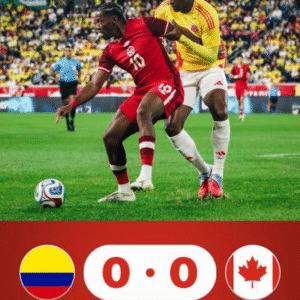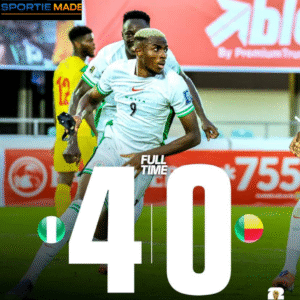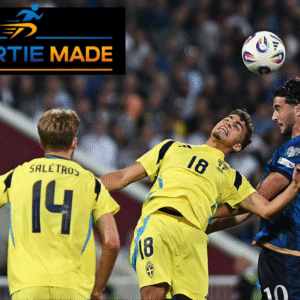
UEFA gives the go ahead for Villarreal – Barça to be held in Miami.
Football history is about to be rewritten. In a decision that has stunned fans and divided the football community, UEFA has officially approved the upcoming La Liga match between Villarreal CF and FC Barcelona to be staged in Miami, United States, later this season.
This groundbreaking move marks the first time ever that a Spanish domestic league match will be played outside Europe. For some, it is an exciting step towards globalizing football and bringing elite European action closer to fans abroad. For others, it is a betrayal of tradition, local supporters, and the essence of fair competition.
Why This Matters So Much
Football is more than just a sport in Spain. It is deeply tied to local culture, community identity, and fan loyalty. Every La Liga season, supporters expect to see their team play at their home ground and travel to rivals’ stadiums, maintaining the balance of the home-and-away league structure that defines fairness.
By moving a league match across the Atlantic, La Liga has broken with over a century of tradition. What makes this move so significant is not just the location, but the symbolism: it represents the growing power of commercial interests over fan traditions, and the way football is evolving into a global entertainment industry.
The Long Road to Miami: Background
The idea of staging La Liga matches abroad isn’t new. As far back as 2018, La Liga president Javier Tebas openly stated his desire to play matches in the United States to expand the league’s reach. The proposal faced immediate opposition:
The Spanish Football Federation (RFEF) opposed it at first, calling it unfair to Spanish fans.
UEFA and FIFA raised concerns about maintaining the sporting integrity of competitions.
Player unions argued it would affect players’ health due to long-distance travel.
Despite these obstacles, La Liga has never abandoned the dream. In fact, they struck a 15-year partnership deal with Relevent Sports, a U.S.-based promoter, specifically aimed at organizing Spanish league matches in North America.
Several attempts were blocked in the past — including a proposed Girona vs Barcelona game in 2019 that FIFA shut down. But now, years later, the project has finally found its breakthrough with Villarreal vs Barcelona in Miami.
The Approval Process
The journey to UEFA’s approval involved a series of careful steps:
Spanish Federation’s Consent RFEF: Earlier this year, the RFEF surprisingly gave its blessing. Analysts say commercial pressures and promises of financial compensation to the clubs softened their stance.
UEFA’s Reluctant Green Light: UEFA was never enthusiastic. In their statement, they described the approval as “reluctant and exceptional”, stressing it should not be viewed as a precedent. Officials are well aware of the backlash and are keen to emphasize this is a one-time decision.
FIFA’s Final Say (Pending): FIFA still holds the final authority. While UEFA’s approval is crucial, FIFA must give its own green light before the match is officially confirmed. Without FIFA’s blessing, the Miami plan cannot move forward
Why Miami and Why Now?
The decision is no accident. Miami is a carefully chosen venue with unique advantages:
Cultural Connection: With its huge Spanish-speaking population and vibrant Latino community, Miami feels like a natural extension of Spanish football culture.
Football Growth in the U.S.: Interest in football has exploded in America, boosted massively by Lionel Messi’s move to Inter Miami in 2023. Hosting La Liga in Miami taps into this momentum.
Commercial Opportunities: The Hard Rock Stadium, expected to host the match, is a 65,000-seat arena capable of generating massive ticket sales, VIP hospitality packages, and global broadcasting revenue.
Strategic Timing: With the 2026 FIFA World Cup being hosted across the U.S., Canada, and Mexico, La Liga sees this as the perfect moment to position itself in the American market.
Divided Reactions
Barcelona & Villarreal
Both clubs welcomed the move. For Barcelona, who already boast millions of fans in North America, it’s a chance to grow their brand and reconnect with U.S. supporters who rarely get to see them live. For Villarreal, a smaller club compared to Barça, it’s a once-in-a-lifetime opportunity for global exposure.
Fan Organizations
Supporters across Spain, however, are furious. Fan groups argue that season-ticket holders are being robbed of a home fixture. Villarreal’s loyal fan base, who would normally enjoy the home advantage at Estadio de la Cerámica, must now watch their team give up that right thousands of miles away.
One supporters’ group stated:
> “Football belongs to the fans. Taking matches abroad is a slap in the face to the people who fill stadiums every weekend. This is not what La Liga is about.”
Rival Clubs
Real Madrid and several other La Liga clubs have also criticized the decision, warning it sets a dangerous precedent. If one match can be moved abroad, what stops more from following? Will we one day see El Clásico in New York or Tokyo?
Sponsors & Broadcasters
Unsurprisingly, sponsors and TV networks are thrilled. An event of this scale promises global coverage, skyrocketing viewership figures, and massive advertising opportunities. For them, this is not just football — it is a global spectacle.
Sporting & Competitive Concerns
While the financial incentives are clear, the sporting side raises difficult questions:
Loss of Home Advantage: Villarreal loses the right to play in front of its home supporters, a disadvantage in terms of morale and competitive balance.
Travel & Fatigue: Players will endure long flights, jet lag, and adaptation to different climates and time zones — all in the middle of a packed season.
League Integrity: If one team plays a game abroad while others do not, does this create an uneven playing field in terms of exposure, fatigue, and commercial benefits?
Critics argue that once domestic league fixtures lose their home-and-away equilibrium, the integrity of the competition is weakened.
What Comes Next
FIFA Approval: All eyes now turn to FIFA. If FIFA approves, the match will officially be staged in Miami. If not, the entire plan collapses.
Venue & Date: The Hard Rock Stadium is expected to host, with December tipped as the likely month. Final details, including kick-off time and broadcasting arrangements, will be confirmed after FIFA’s decision.
Ticket Sales & Promotion: If confirmed, the event will be marketed as a historic first, with huge promotional campaigns across the United States. Expect ticket demand to be sky-high.
A Glimpse Into Football’s Future
This decision raises big questions about the future of football:
Will this become a regular trend, with European leagues selling matches abroad for financial gain?
Could fans lose the tradition of home fixtures if clubs chase international markets?
Is football slowly shifting from a local passion to a global entertainment business, similar to the NBA and NFL?
Some experts warn that if this move succeeds financially, it will be very hard to stop other leagues and clubs from following. The Premier League, for example, has long considered hosting matches abroad, with talk of a “39th game” in international markets.
Final Thoughts
The Villarreal vs Barcelona match in Miami is more than just another La Liga fixture. It is a test case — an experiment that will shape the future of European football.
To some, it represents progress, innovation, and a bold step into new markets.
To others, it is a betrayal of tradition, an insult to loyal fans, and the commercialization of the sport they love.
When the players step out at the Hard Rock Stadium in Miami, the world will be watching. Not just to see the result on the pitch, but to witness whether this bold gamble is the beginning of football’s globalization — or the start of a bitter fight to protect the game’s traditions.
What is your opinion about this?










